If A Person Owns These 11 Household Items, They Grew Up With Overly Strict Parents
The little things in a house can reveal a childhood governed by strict rules.
 Lopolo | Shutterstock
Lopolo | Shutterstock Parental strictness and authoritarian parenting styles often negatively affect adult success later in life, according to a study from the International Journal of Behavioral Medicine. Not only do strict parents cause cognitive and behavioral issues in childhood, but they also lead to more subtle struggles — such as lacking autonomy and having difficulty with emotional regulation during conflicts — that hinder the ability to build healthy social and personal relationships.
Many people with strict parents also grow up without the freedom to experiment with and develop their own identity and personality, which can make navigating adulthood with a strong sense of self much more difficult. Just like their car or their sense of style, their living space as an adult reveals a lot about this ongoing struggle with identity. So, if a person owns these specific household items, they probably grew up with overly strict parents.
If a person owns these 11 household items, they grew up with overly strict parents:
1. Plastic couch coverings
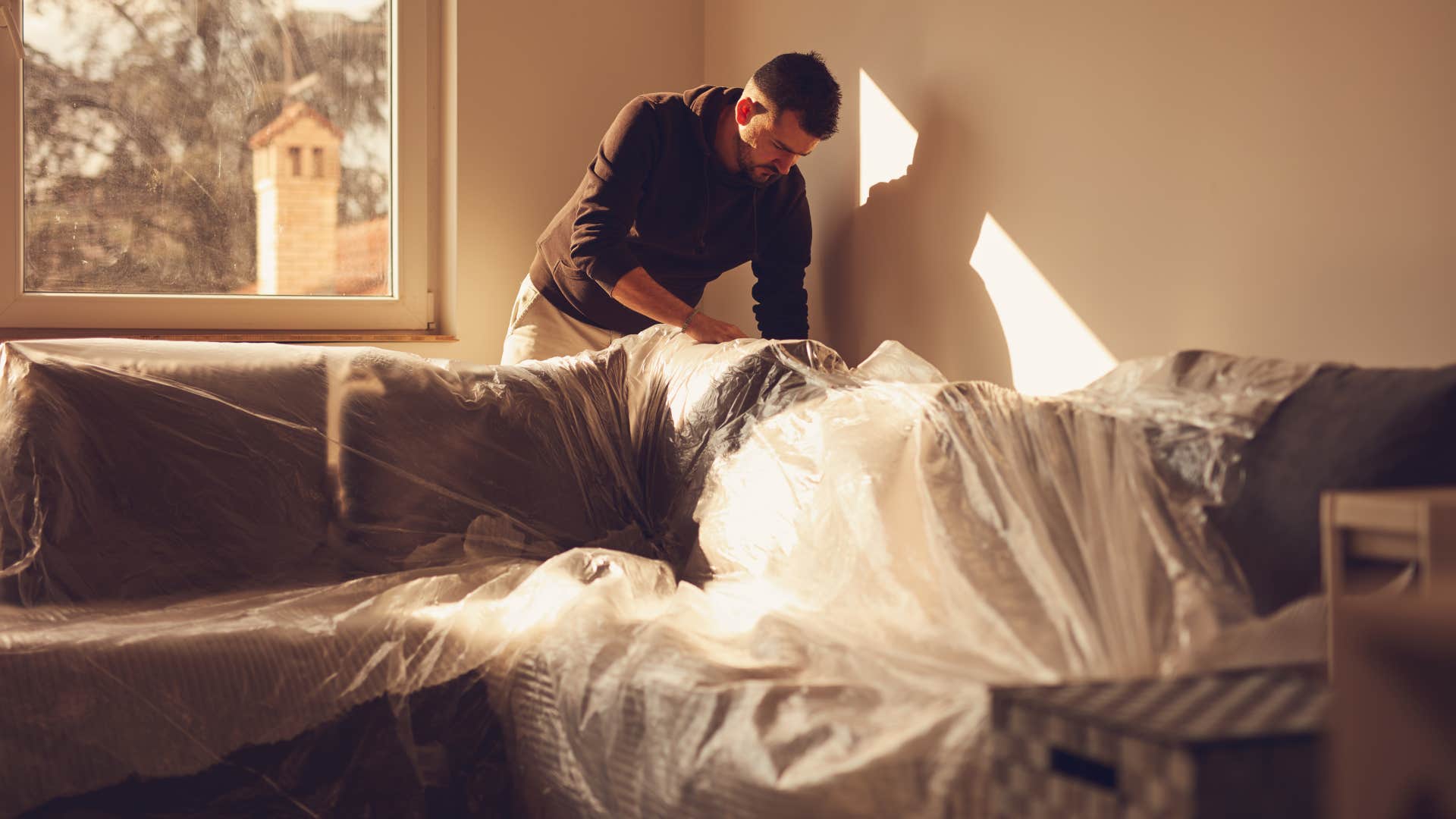 AstroStar | Shutterstock
AstroStar | Shutterstock
A study from the University of Missouri suggests that using material goods in parenting techniques could be setting children up for struggles later in life. Whether that means giving kids gifts for good behavior or punishing them for damaging possessions like furniture, these approaches can emphasize materialism, which can carry over into adulthood.
So, if a person owns things like plastic couch coverings – that place a greater emphasis on cleanliness of furniture or personal comfort and connection – chances are they grew up with overly strict parents.
2. Too many screens
 Andrey_Popov | Shutterstock
Andrey_Popov | Shutterstock
Children who grow up with consistently unmet needs, parents lacking warmth, and strict routines often develop avoidant tendencies later in life, according to a study from the Scientific Reports journal. They aren’t taught how to regulate their emotions during conflicts, but instead to fear and avoid them to protect their own peace at home.
That’s why it’s not entirely surprising that distractions, such as having numerous screens at home, are common for these adult children later in life. Whether it’s conflict in a relationship or stress in their routines, they often rely on technological distractions like watching TV to cope instead of using healthier habits like moving their bodies or asking for help.
3. Lots of unfinished projects
 Krakenimages.com | Shutterstock
Krakenimages.com | Shutterstock
Whether it’s random equipment for hobbies or unfinished household repairs, if someone owns these items, they likely grew up with overly strict parents. Since emotional regulation and self-discipline are often skills that adult children of strict parents lack—they were taught to obey orders rather than to motivate themselves—they tend to have difficulty staying motivated as adults.
Whether it’s finishing projects due to a lack of motivation or committing to a hobby, their perfectionist nature often causes adult children with strict parents to struggle with completing and fully committing to tasks.
4. Decorative towels
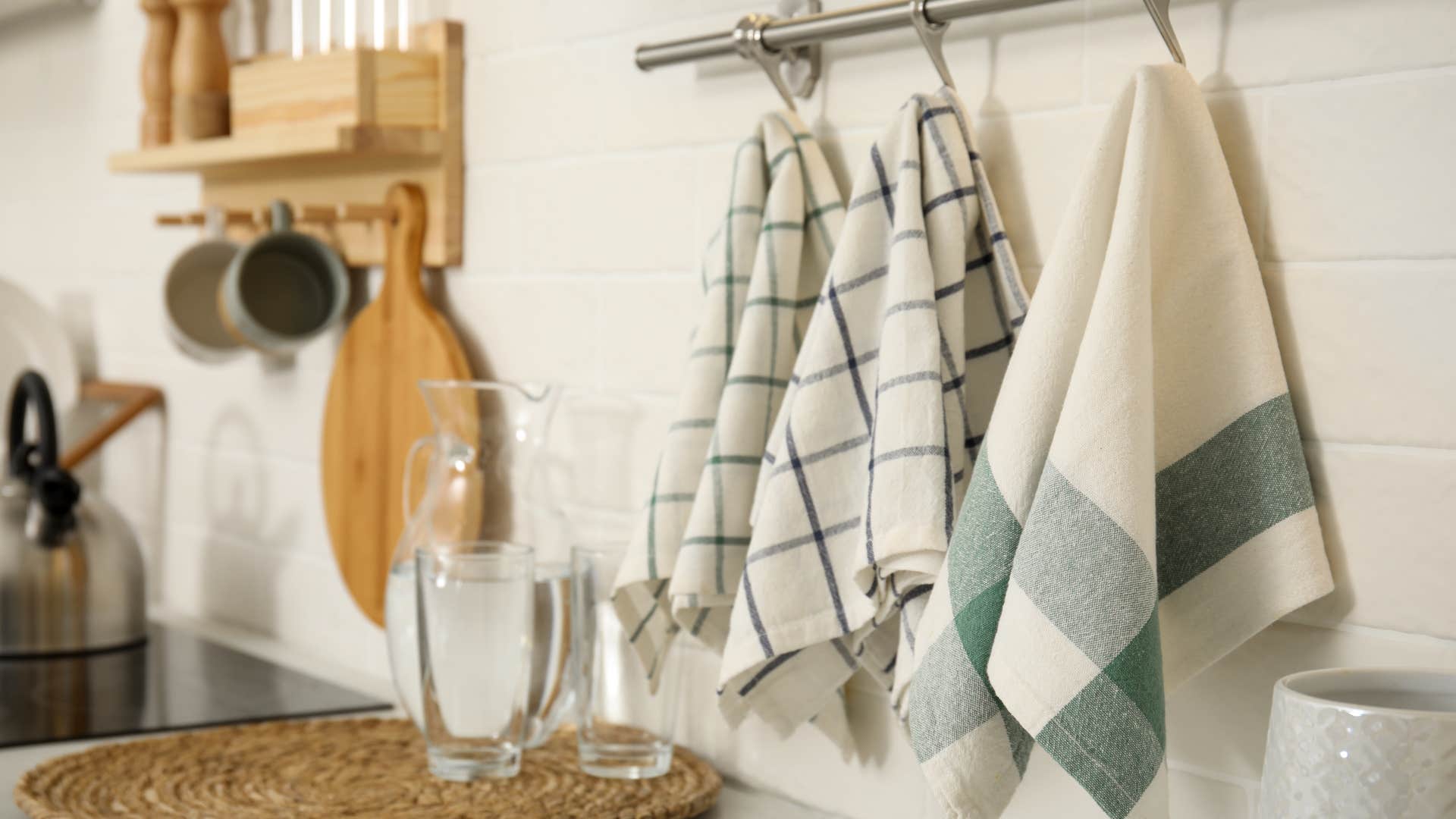 New Africa | Shutterstock
New Africa | Shutterstock
Many people who grew up with strict parents have household items and decor that are only for show, not for practical use or enjoyment. From decorative towels to expensive furniture, they seek validation from others and their material possessions, just like their parents.
While they may not use their material possessions to punish or reward their kids like their parents did when they were growing up, materialism often influences how they interact with and build relationships with others.
5. An overly organized chore chart
 Ahmet Misirligul | Shutterstock
Ahmet Misirligul | Shutterstock
Since they grew up in a household where they had little to no control over their routines, sense of self, behaviors, or routines, it’s not surprising that many adult children of strict parents cling to control in any way they can. That’s why someone with a highly organized chore chart or family calendar probably had strict or overbearing parents.
While the frustration and tension in their family relationships with parents may still be present, they’re likely embodying the kind of controlling behaviors that they resented their parents for earlier in life.
6. Coasters for every drink
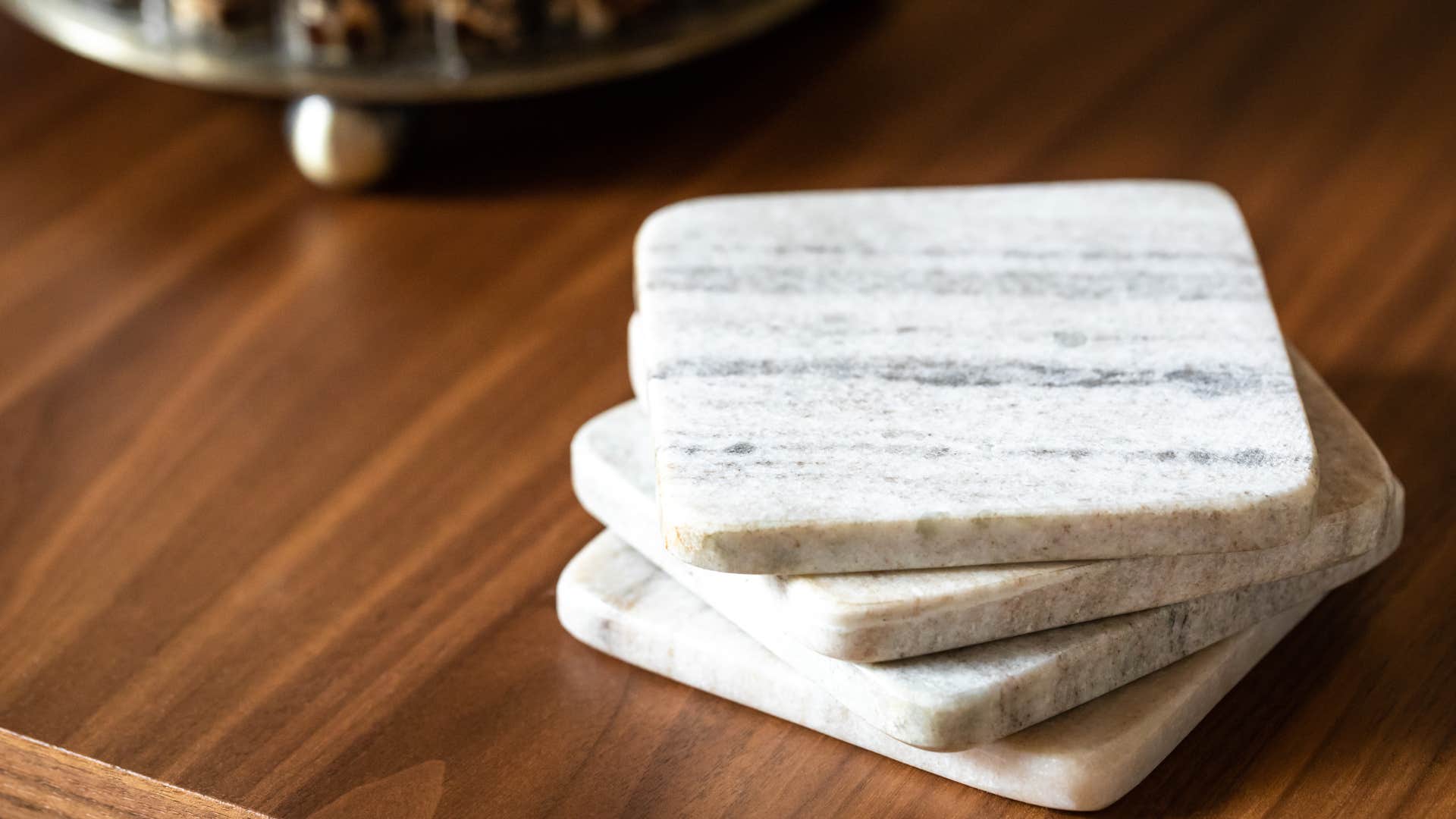 VDB Photos | Shutterstock
VDB Photos | Shutterstock
Protecting your hardwood furniture from drinks is one thing, but placing more importance on protecting material possessions than on connecting with and showing empathy to others is a sign of people who grew up with strict parents. They have been conditioned to value material things far more than they should, so household items like plastic couch covers and countless coasters are quite common.
While their attitude toward this type of materialism – believing that material goods bring happiness versus access – is often linked to their experiences in adulthood, the underlying themes are rooted in parental attitudes and parenting styles.
7. A locked thermostat box
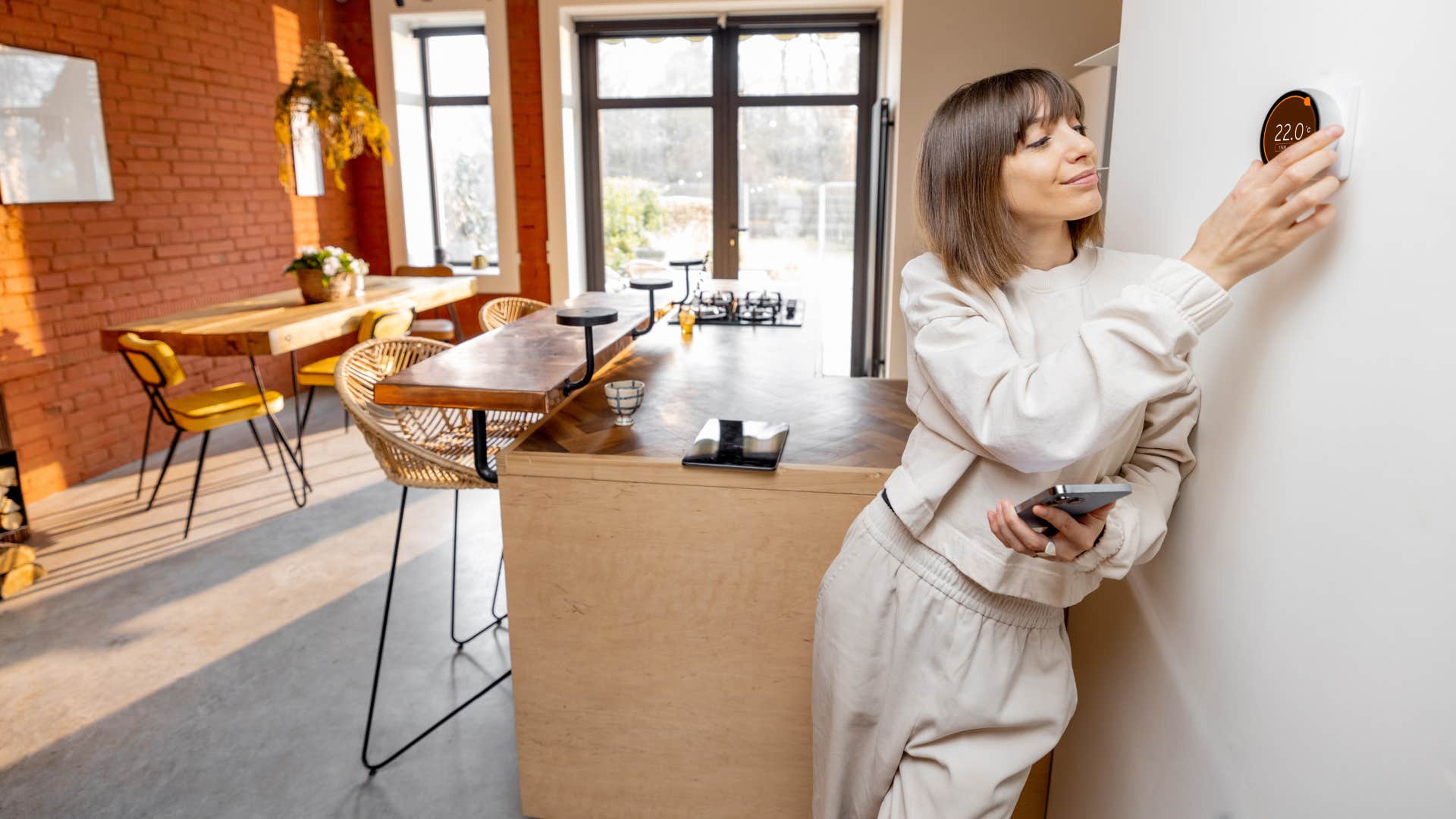 RossHelen | Shutterstock
RossHelen | Shutterstock
According to psychologist Bernard Golden, many kids with authoritarian or strict parents tend to be ordered around because parents are seen as superior and hold greater authority in their homes. Later in life, these adult children may compensate for their lack of autonomy by becoming hyper-independent, attempting to control everyone and everything in their lives without reservation.
So, if someone owns a locked thermostat box in their home, they probably grew up with overly strict parents and are compensating by controlling seemingly minor things, like the temperature.
8. Locked desk drawers
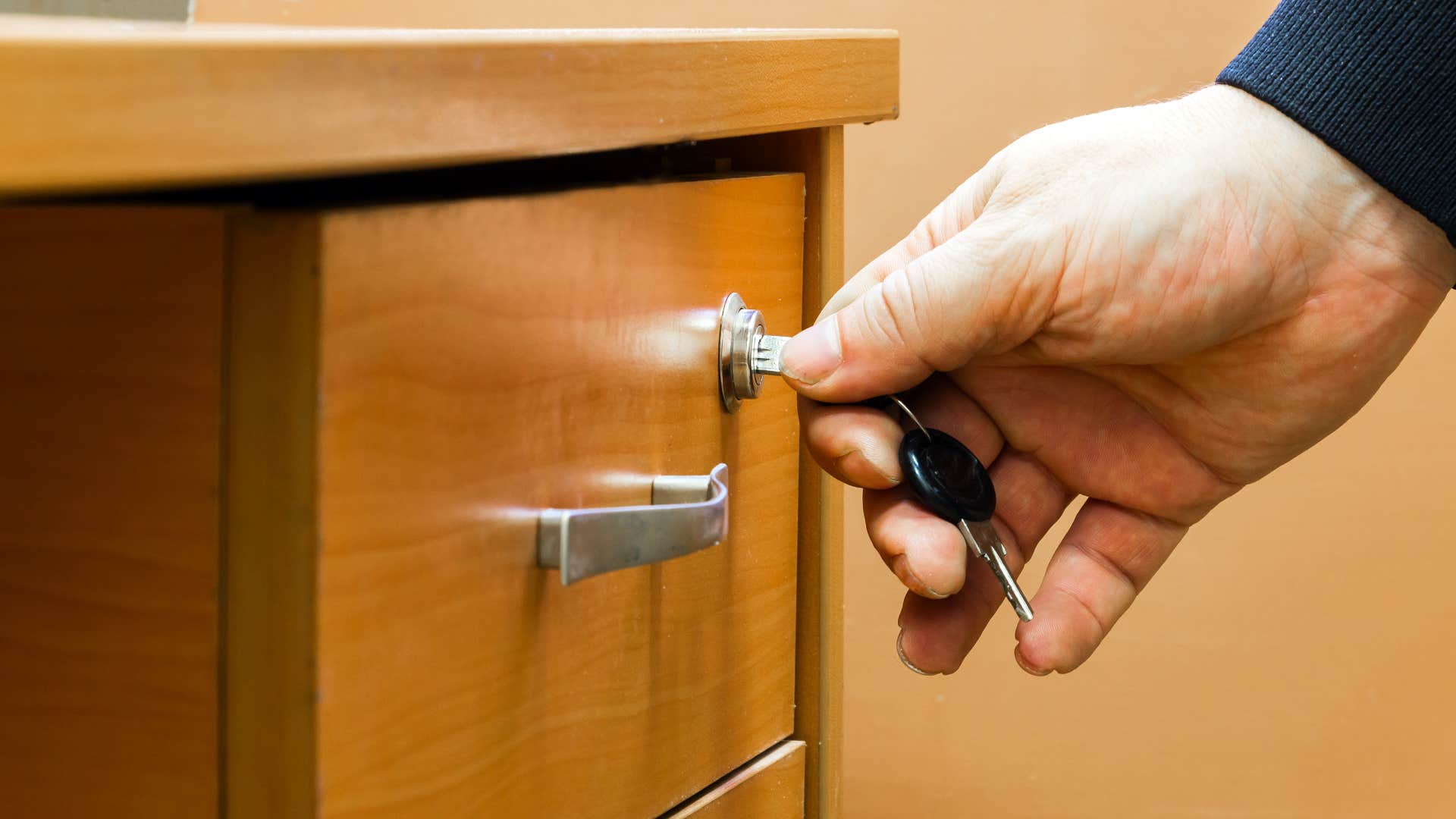 Proshkin Aleksandr | Shutterstock
Proshkin Aleksandr | Shutterstock
Many people who grew up with strict parents are less comfortable with emotional expression, closeness, and vulnerability in their relationships as they get older, largely compensating for unmet needs and warmth from parents earlier in life. While this can show up as social isolation or rigidity in relationships, it can also appear through seemingly innocent household items like a locked desk drawer.
Even for their close friends and loved ones, anything personal — whether it's literal, like private papers, or metaphorical, like internal feelings — is considered private.
9. Expired groceries
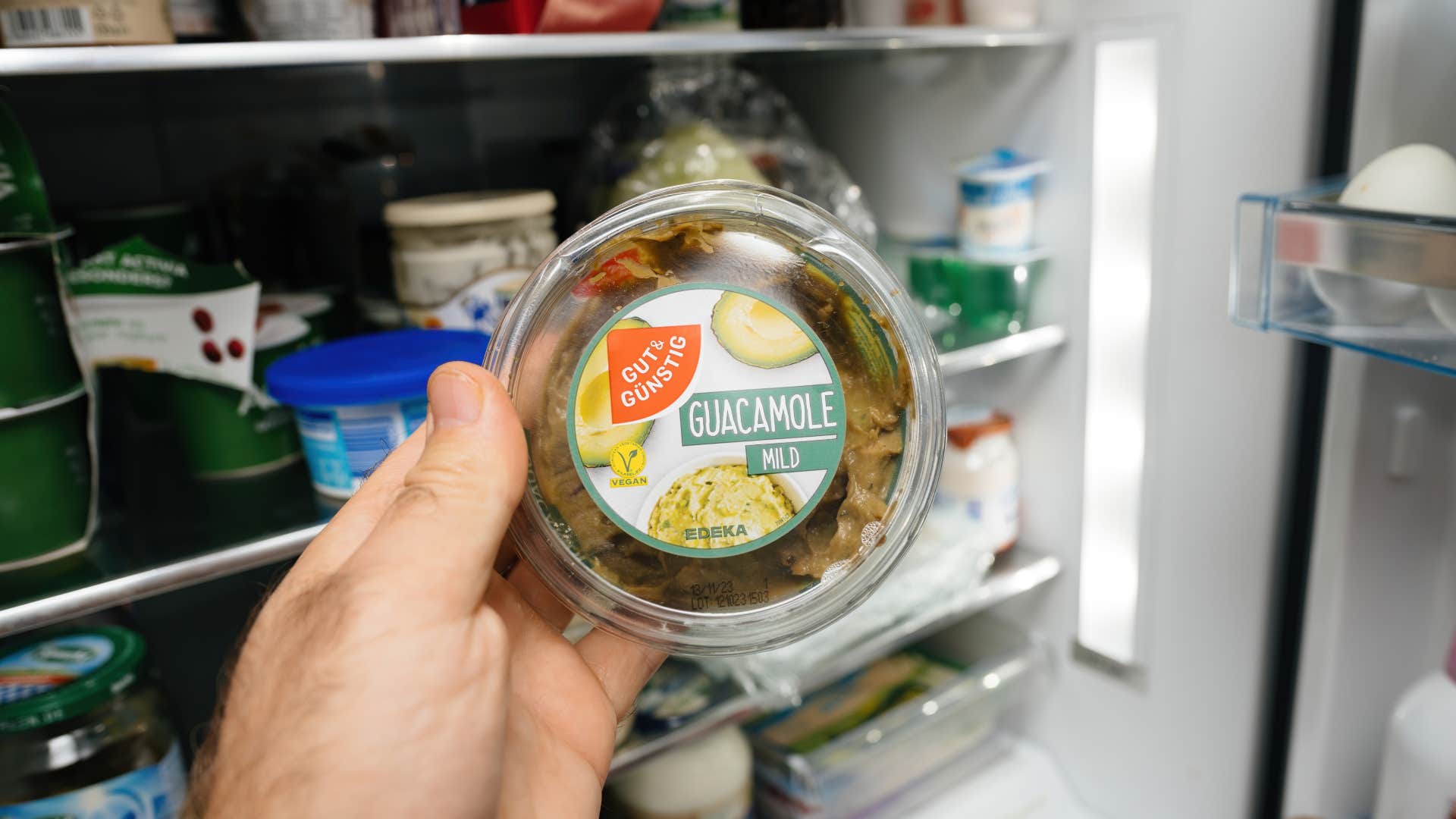 Hadrian | Shutterstock
Hadrian | Shutterstock
Expired groceries in the fridge and stacks of unopened mail are common for people hindered by self-sabotaging tendencies in adulthood. As psychology expert Mandy French argues, these behaviors often originate from low self-esteem and internal anxiety, which are most prevalent among those who grew up with overbearing, strict parents.
They may be hyper-independent to a fault in some cases, but for others, it’s still a struggle with unmet needs and parental stability that leads to more anxiety, isolation, and fear.
10. A full home office setup
 Girts Ragelis | Shutterstock
Girts Ragelis | Shutterstock
Many kids who grow up with strict parents, who also have unrealistic expectations for success and poor support systems, are more likely to experience burnout as adults. Whether that means working longer hours or taking on unsustainable amounts of work, it’s not uncommon for them to have work computers and home office setups in their living spaces.
They’re still seeking their parents’ approval or, at the very least, a sense of autonomy and achievement, even if they’re not entirely conscious of it. Not only do their energy and personal appearance reveal these tendencies, but their home decor and household items do as well.
11. An overflowing closet
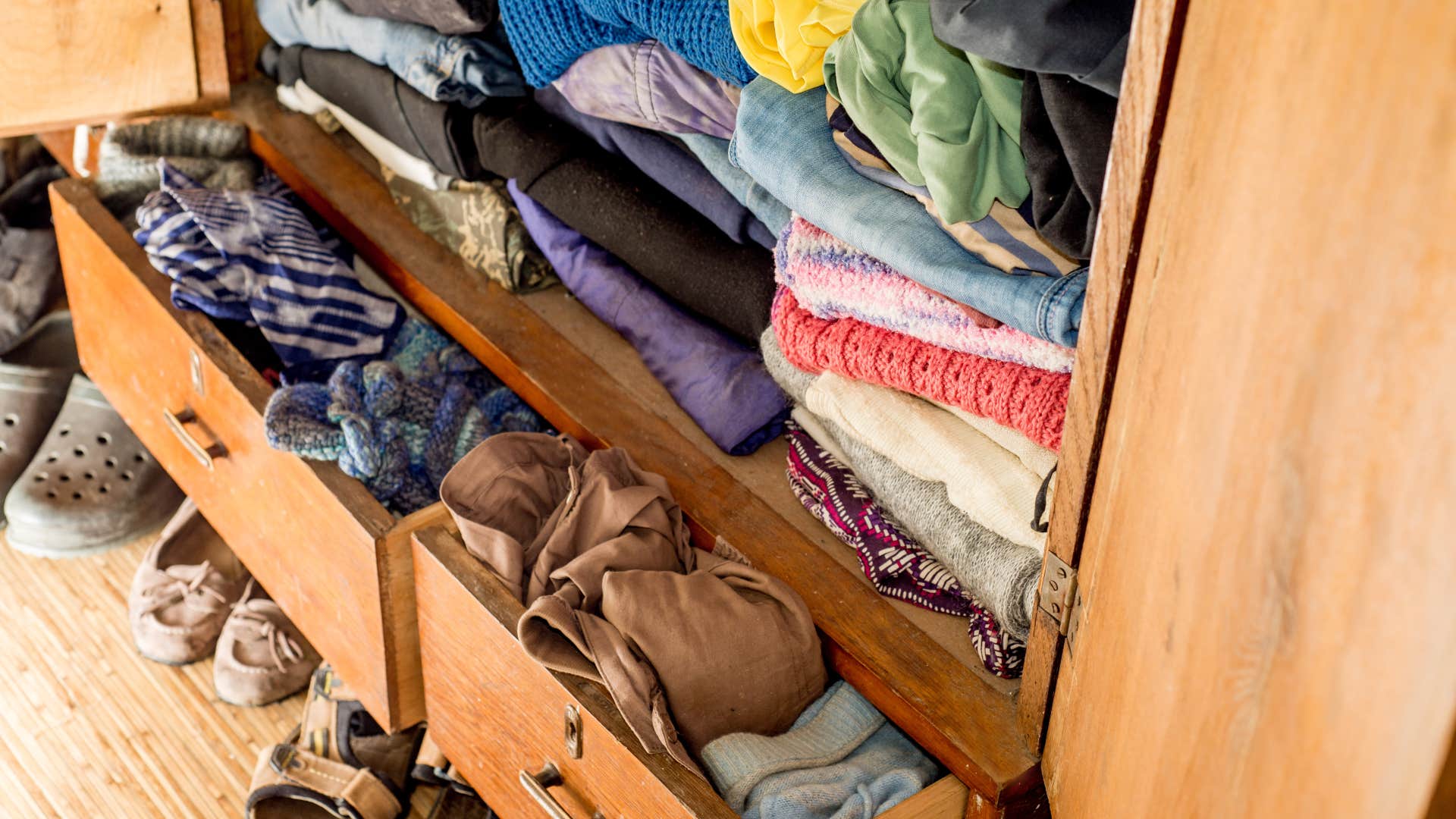 smirart | Shutterstock
smirart | Shutterstock
According to a study from Michigan State University, adult children who grew up with strict and authoritarian parents often struggle to think independently. Whether it’s making big life decisions or critically thinking their way through problems in their daily life, their tendencies toward hyper-independence have limits.
That’s why if a person has an overflowing closet, they probably grew up with strict parents. Whether it’s an act of defiance and independence – keeping and growing their own material possessions that nobody else can take away – or due to struggles with executive functioning, it’s common in these kids’ homes as they grow older.
Zayda Slabbekoorn is a senior editorial strategist with a bachelor’s degree in social relations & policy and gender studies who focuses on psychology, relationships, self-help, and human interest stories.

